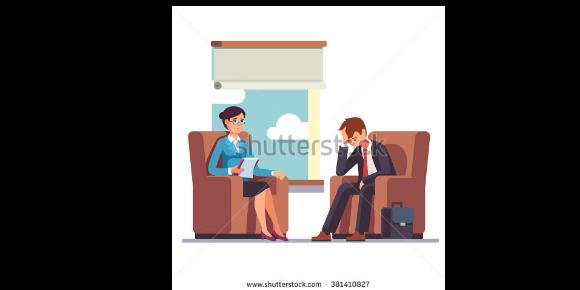
The answer to this question is seldom as clear cut as it would seem. Oftentimes, when a client first presents to my office, they have a sense that something isn’t quite right. Perhaps they just can’t shake a persistent feeling of sadness. Maybe subtle feelings of anxiety and fear are creeping into everyday activities that used to be accomplished with ease. Whatever the problem that brings someone through the door, there is often a similar question; do I need professional therapy? Where is the line drawn between typical, normal emotions and those which require intervention. I hope the following guidelines might help you to make this decision.
- Has there been a significant change in your level of functioning? We all have different standards for things, whether it’s how neat we keep our homes, or how much time and effort we put into getting dressed each morning. A messy house and mismatched socks don’t necessarily mean that you need psychological treatment. The key here is change. If your personal habits have undergone an unintentional, significant change, it may be time to explore what’s driving that.
- Are you knocking back more alcoholic drinks (or other non-prescribed substances) than you used to? Have you gone from enjoying a glass of wine or two on a Friday night to using alcohol, pot, food, or other substances to cope with painful emotions? This can be a very slippery slope, and one that’s easily rationalized in our society. If you find that you need more than you once did in order to get the same feeling, or feel anxious about how you would cope if you couldn’t have a drink or three to get yourself through that party, it’s time to address the issues underlying your substance use.
- Are you keeping secrets about your emotions, thoughts and/or behaviors from friends and loved ones due to embarrassment and shame? This is a tricky one. Of course we all have secrets, things we’d rather keep to ourselves. Part of having good interpersonal boundaries is not telling everyone, everything at all times. However, if you find that you’re keeping a good deal of your thoughts, feelings, and behaviors to yourself, due to fear of being judged or feelings of shame, talking to a professional may help you sort out what’s typical and what’s not.
- Are your thoughts, emotions, and/or behaviors interfering in your ability to meet the demands of your professional, academic, social, and/or family life? This one is really the key. Whenever professional therapists or psychiatrists look to diagnose and treat a mental illness, they will question if it’s significantly impacting their client’s life. If the answer is yes, seeking professional help can help get you back on track.
- Are you having thoughts about ending your life? If this is the case, don’t wait to seek help. Call the National Suicide Prevention Lifeline at 1-800-273-8255, or text START to 741-741 to access the Crisis Text Line. Both services are available 24 hours a day, 7 days per week.
Dr. Scrivani specializes in the treatment of anxiety and related disorders, and provides tele-mental health services to residents of New York and Florida. Call (888) 535-5671 or email drjana@itherapymail.com.